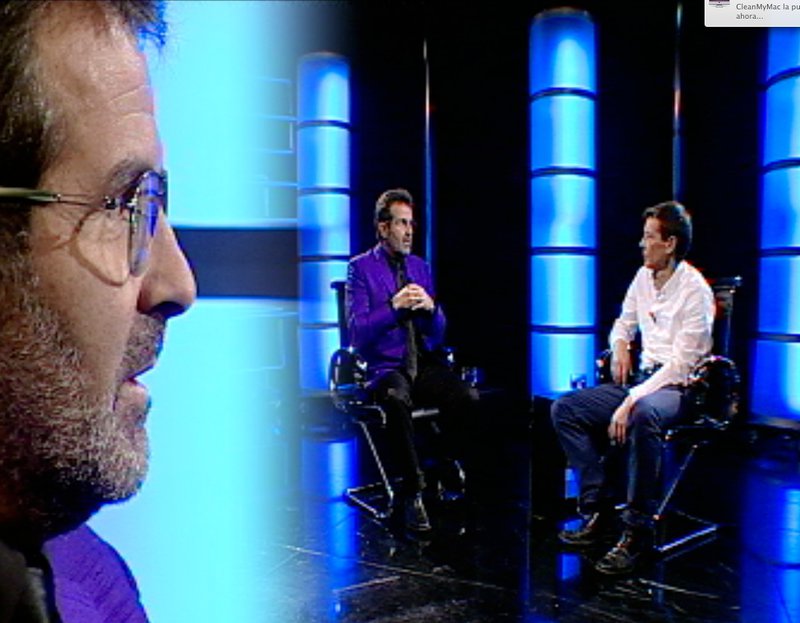Interview
'Translating' economics
Xavier Sala i Martín Each Monday at 6.30pm, El Punt Avui TV airs Going native, the series in which Neil interviews prominent Catalans in English. Recently, economist Xavier Sala i Martín dropped by for a chat.
Where did you learn English?
I didn't know any English when I left because I'm a product of the Franco education system. So, when I decided to go to the US for my PhD, I realised I had to learn English. And because I learned it as an adult, I still have a Catalan accent 30 years later.
You also travel a lot. When you advise the likes of the IMF, do they listen?
Usually they don't but they like to have a strange point of view. Usually I tell them I don't like how the World Bank or the IMF operate. But they keep asking for my advice even though they know that my reaction will in general be negative.
Is getting the message across to the public as hard?
I think economists, like scientists, tend to have an intellectual arrogance that becomes a barrier for the lay person. They think people won't understand the highly sophisticated issues they talk about. There is a lot of that, but one of my goals is to translate these often complicated concepts and language so that regular people can understand. Everybody worries about health or eating habits but there is a very important aspect of life, which is your economic environment and people need to understand it, to buy and sell, to get a loan or understand the return on your savings. Economics is around you every hour of your life and yet people can go through life without learning any economics.
So what is the solution?
We need to teach economics. Economics has to be a mandatory part of education but the kind of maths we teach is not the kind of maths useful for everyday life. We teach all kinds of calculus, but there are other kinds of maths that are more important and useful, which we encounter every day: statistics. In the news every day, there are graphs, numbers, averages, stock market figures. All of this is statistics but people never learn statistics. But that can change easily, and I think that if it changed we'd have fewer economic disasters of the type we have had in recent years.
Would an independent Catalonia be better off?
Nobody knows but we know that if Catalonia was an independent country, it would be a normal country. In a normal country people vote for parties. Then there is a parliament, which passes laws and, depending on what you vote for, you get policies that make you better off or not. Just like Holland or Denmark. Nobody can say that Denmark is going to be a miracle for ever; if they make the wrong decisions, they will get the wrong outcomes. So, if we vote for the same things as Sweden, we will be fine because we'll end up like them. But if we vote the same as Portugal, which is worse off than Spain, we'd go backwards. I don't know how the Catalans will vote but independence provides an opportunity to make decisions that are not against the Catalan people.
What do you mean by “against the Catalan people“?
Because we are part of Spain, many decisions are made by Spanish politicians. They are not bad people, they are not against Catalonia. But they have their own preferences, which are different from ours. And so often they make decisions that go against us. For example, infrastructure. They think that all infrastructure must go through Madrid. This might be reasonable if you are Spanish, and I don't criticise them for that, but it is not good for Catalonia. We need trains to Valencia or the Basque Country because they are poles of economic activity. But we don't have that. So, how can we change that in Spain? We can't; we're a minority.
But that is true for most autonomous communities.
It is true for the whole periphery but there are other policies more specific to Catalonia, like language. We might be crazy wanting to teach our kids in Catalan, and they might be right wanting everyone to be educated in Spanish. But we think teaching in Catalan has been a way to integrate a huge migration wave. When I was a kid, there were the Catalans, who spoke Catalan at home, and the Spanish, who had come from Spain and who spoke Spanish. But then we created a school system that taught everyone in Catalan. One generation later, the children of the two groups are my students at Pompeu Fabra university, and you cannot tell them apart. This ability to integrate a population in just one generation is miraculous, and we value it and want the right to continue to teach everyone in Catalan. If you let some people split off, maybe they will go back to the ghetto and then we'll be different again. We might be crazy but we want the right to have the schooling that we can't have in Spain. And when you want to do things you can't do within Spain, then you have to leave Spain. It's as simple as that.
Leave a comment
Sign in.
Sign in if you are already a verified reader.
I want to become verified reader.
To leave comments on the website you must be a verified reader.
Note: To leave comments on the website you must be a verified reader and accept the conditions of use.

